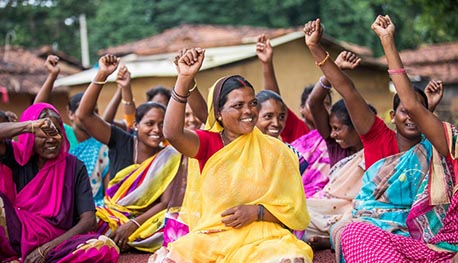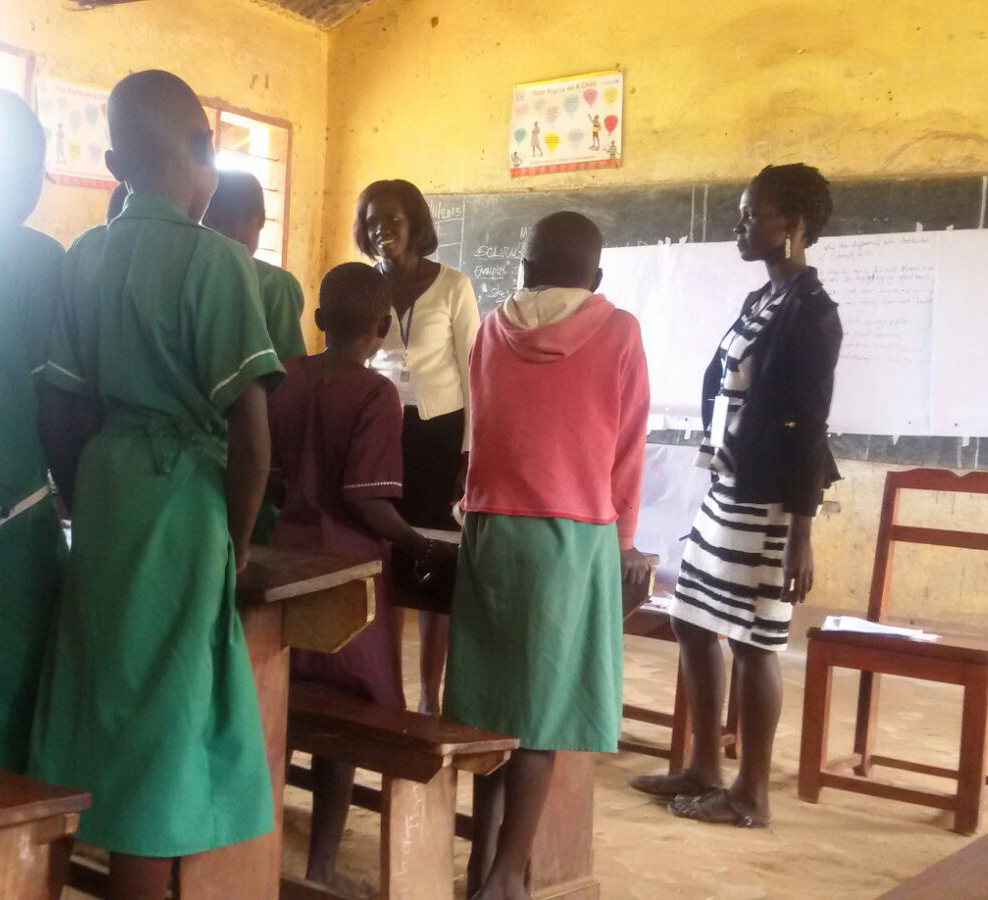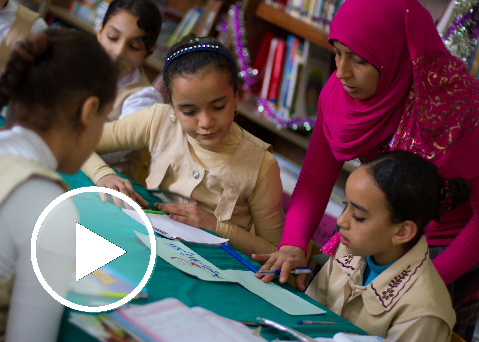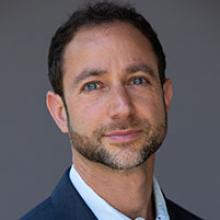Educating Girls and Women Throughout the World

Equitable access to education is a global challenge for many, but especially for girls.
Worldwide 61 million girls are not enrolled in school and many more must overcome barriers in order to continue their education or return to school.
The evidence overwhelmingly shows that educating girls contributes to the social and economic development of communities, increases household earning potential, and provides a foundation for making informed health and safety decisions.
Helping girls access learning opportunities so they can achieve their greatest potential is an important focus of AIR’s work across the globe. Read more about these projects and hear from those involved in the work:
 Evidence Consortium on Women's Groups
Evidence Consortium on Women's Groups
To counter the societal and structural challenges women face that limit their opportunities and well-being, governments, development agencies, and nongovernmental organizations have invested in different types of women’s groups, including economic self-help group programs and women’s groups practicing participatory learning and action. Recent work addresses the effects of the COVID-19 pandemic.
Equitable Access in Cote d'Ivoire
The armed conflict in Côte d'Ivoire had serious consequences on the country’s education sector. As part of peace-building efforts, AIR worked with USAID to increase equitable access to education, especially for girls, by strengthening systems, building middle schools, and engaging the community.
Positive Gender Socialization in Uganda
UNICEF and the Ministry of Education in Uganda implemented a program to encourage gender equality and positive gender socialization in primary schools. The program, which AIR is evaluating, includes several trainings in gender, identity, and peace-building to build teachers’ capacity as agents of change to foster a change in gender social norms in schools.
 The Value of Girls' Education in Liberia
The Value of Girls' Education in Liberia
Kabeh Sulunteh, spokesperson for AIR's girls' education work in Liberia and wife of the Liberian ambassador to the U.S., talks about how education can empower girls and help them to improve their communities.
A Second Chance: Remedial Reading in Egypt 
Many Egyptian students are missing out on foundational literacy skills in the early grades while older students are being passed along into the upper grades without having acquired such skills. In this video, AIR literacy specialist Rebecca Stone talks about how AIR developed a remedial reading and writing program and literacy teacher-training program to address the need in Egypt.
Girls' Opportunities to Access Learning (GOAL) and GOAL Plus in Liberia
The 1989–2003 civil war disrupted all aspects of Liberian society, government services, and daily life, and the country’s education system was no exception. The GOAL and GOAL Plus projects, implemented between 2010 and 2015, aimed to improve girls’ enrollment, attendance, and retention in six districts in Liberia.
She Looks Back
AIR is partnering with local organizations to increase educational opportunities for girls in Liberia. The video She Looks Back features compelling first-hand accounts of what life is like for girls in post-conflict Liberia who are struggling to better their lives.

